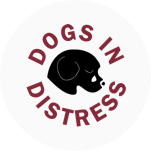Basic Obedience Training
Obedience isn’t about control — it’s about communication.
When your dog understands what’s expected and how to earn rewards, they become calmer, more confident, and easier to live with.
Training should always be based on positive reinforcement — rewarding the behavior you want, not punishing the one you don’t.
Your dog learns through association — actions that lead to rewards get repeated.
Use praise, treats, toys, or affection to show what’s right.
✅ DO: Reward immediately after your dog performs a behavior.
🚫 DON’T: Yell or scold. It creates confusion, not clarity.
💡 Tip: Keep training sessions short (5–10 minutes), positive, and end on success.
Before training begins, make sure you have the right equipment:
✅ Harness vs. Collar — Choose a comfortable no-pull harness that doesn’t restrict movement. Avoid choke or prong collars.
✅ Leash Length — Use a 4–6 ft lead for training (not an extendable one).
✅ Treats & Rewards — Bring small, high-value treats like chicken or cheese.
✅ Quiet Environment — Begin in a distraction-free area before moving outdoors.
Hold a treat above your dog’s nose and move it back slowly.
As the head tilts up, the bottom drops down.
Say “Sit” once, then reward immediately.
Pro Tip: Practice before meals — dogs learn fastest when a reward naturally follows.
Ask your dog to sit.
Hold your palm out and say “Stay.”
Step back one pace — then return and reward if they didn’t move.
Gradually increase distance and duration.
Remember: Always release them with a cue like “Okay!”
Start in a quiet space.
Say “Come!” in a happy tone, kneel down, and open your arms.
Reward with high-value treats and excitement.
Never: Call your dog for something negative (like a bath or scolding).
They should always associate “Come” with positivity!
From a sit, hold a treat to the nose and slowly lower your hand to the ground.
When your dog lies down, say “Down,” then reward.
Common Issue: If they pop back up — stay patient, and guide slower.
🚫 Over-repeating commands (“Sit, sit, sit…”) — say it once, then guide.
🚫 Using punishment — this damages trust.
🚫 Training too long — mental fatigue kills focus.
🚫 Inconsistency — mixed signals confuse your dog.
Playlist

5:57

4:59
Fostering
Get Involved
Dogs in Distress is a registered charity. Dogs in Distress Limited is fully compliant with the Charities Governance Code.
RCN NUMBER: 20059491 | CHY NUMBER 16481 | CRO NUMBER 505 799
